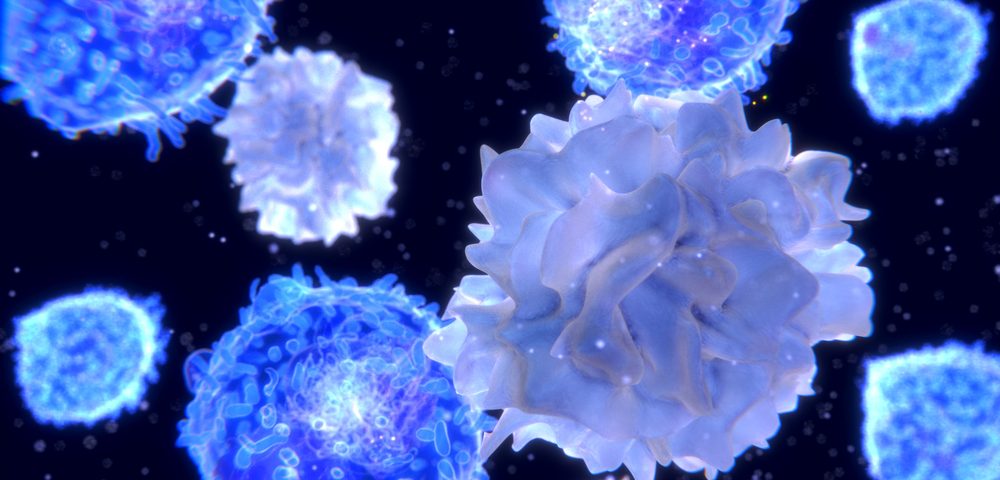A new cancer vaccine that uses a patient’s own immune-regulating dendritic cells to target the HER2 protein can activate the immune system and cause regression of early-stage HER2-positive breast cancer, according to a study.
The therapy is particularly effective in patients with a non-invasive form of the disease called ductal carcinoma in situ (DCIS), as compared with patients with an early-stage invasive disease, researchers said.
The study, “Dendritic Cell Vaccination Enhances Immune Responses and Induces Regression of HER2pos DCIS Independent of Route: Results of Randomized Selection Design Trial,” was published in Clinical Cancer Research.
The HER2 protein is found at high levels in nearly a quarter of all breast-cancer tumors. It is associated with aggressive disease and poor patient outcomes.
Although this makes HER2 a promising target for cancer therapies, researchers had previously shown that as HER2-positive breast cancers progress into a more aggressive stage, the immune system loses its ability to counter the protein.
Researchers at the University of Pennsylvania Perelman School of Medicine in Philadelphia, developed a dendritic cell vaccine that could trigger a strong anti-HER2 immune response.
The choice of dendritic cells for a cancer vaccine lies in their ability to sensitize tumor-killing T-cells to specific cancer proteins. The research team created the vaccine by harvesting dendritic cells from a patient’s blood, then exposing them to fragments of the HER2 protein. The vaccine sensitizes T-cells to cells that activate the protein.
To determine the safety and effectiveness of the vaccine in patients with HER2-positive early-stage breast cancer, the team conducted a small randomized trial (NCT02061332) with 54 women. The vaccine was injected once a week, for six weeks, into either a lymph node, the breast tumor, or both locations. Surgeons then removed any remaining cancer cells in the breast.
The vaccine was well tolerated, with patients experiencing only low-grade toxicities. Adverse events included fatigue, chills, and reaction in the injection site.
Importantly, researchers found that the vaccine stimulated an immune response in 80 percent of patients, either in peripheral blood or the sentinel lymph node, places where the cancer is likely to spread first.
To assess the vaccine’s effectiveness, the researchers checked tissue samples collected during surgery for signs of the disease. They considered an absence of cancer cells in the samples a pathological complete response (pCR).
Results showed that 13 patients attained pCR. The complete-response rate was similar across all three injection routes, but was higher in patients with DCIS than in patients with invasive early-stage breast cancer. Interestingly, DCIS patients who achieved pCR displayed a higher immune response in their sentinel lymph nodes.
“These results suggest that vaccines are more effective in DCIS, thereby warranting further evaluation in DCIS or other minimal disease settings, and the local regional sentinel lymph node may serve as a more meaningful immunologic endpoint,” Brian J. Czerniecki, MD, PhD, chair of the Department of Breast Oncology at Moffitt Cancer Center, said in a press release.

